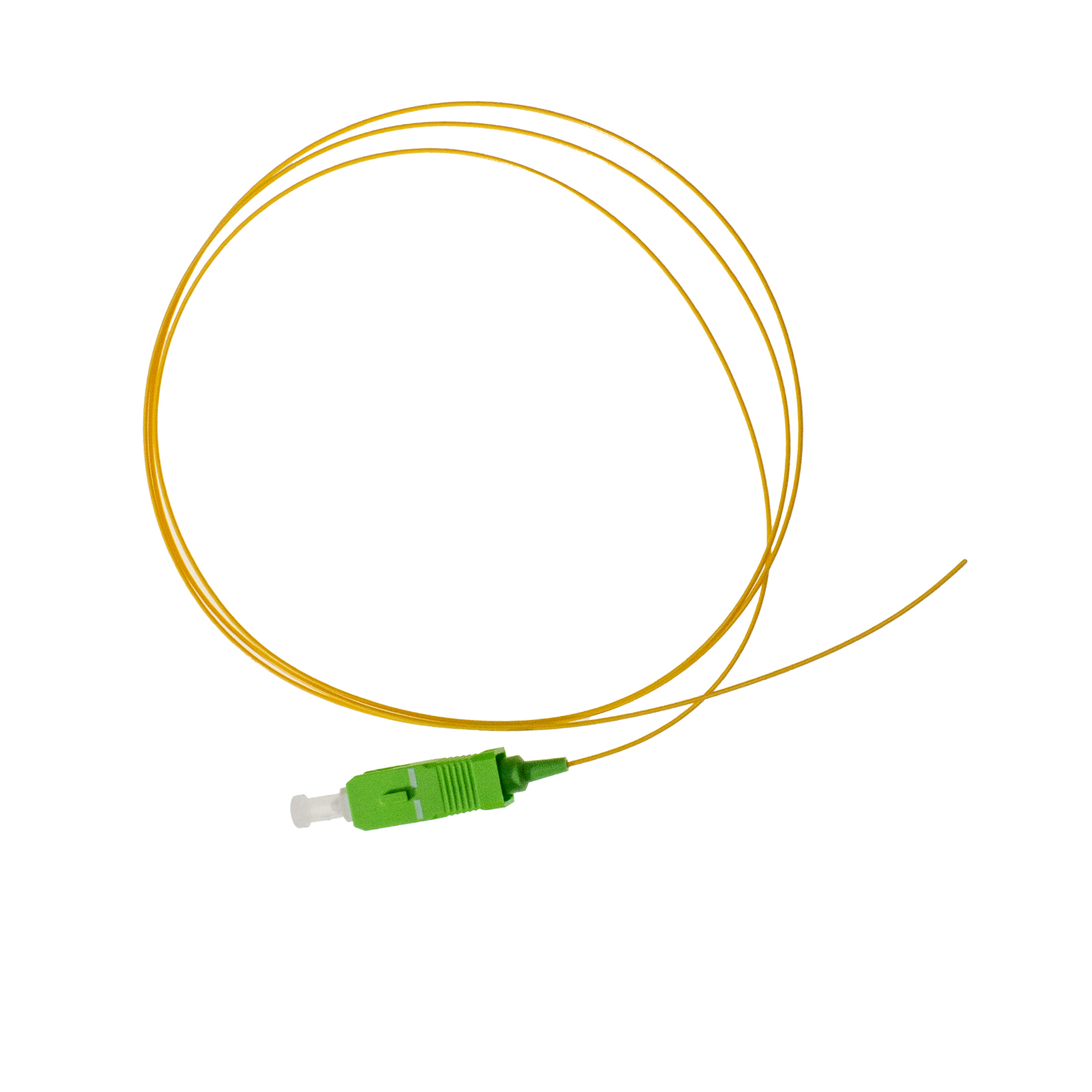Description
Fiber optic pigtail are utilized to terminate fiber optic cables via fusion or mechanical splicing. High-quality pigtail cables, coupled with correct fusion splicing practices offer the best performance possible for fiber optic cable terminations. Fiber optic pigtails are usually found in fiber optic management equipment like ODF, fiber terminal box and distribution box.G.657A1 is the NEW de facto standard for bend-insensitive NDSF SMF for premises cabling, thanks to optimized performance and cost balance. Minimum bending radii can be optimized, but this sacrifices fiber attenuation and cost. ITU-T G.657A1 and A2 are fully compliant with G.652D, and can offer enhanced, low-loss fiber. Bend-insensitive NDSF is defined in ITU-T G.657, with different minimum bending radii characteristics: G.657A1 (10 ?m).
When weighing your options between on-premises and access network fiber replacement or new installation, we highly recommend replacing legacy OS1 with a new bend-insensitive OS2 (ITU-T G.657A1) SMF cabling system to support longer reach with enhanced link performance.Single-mode fiber provides users with a greater transmission rate in addition to nearly 50 times longer distance as opposed to multi-mode fiber. However, single-mode fiber is more expensive than multi-mode fiber. Among all the differences between single-mode and multi-mode fibers, the most basic is the size difference in the fibers? core as well as the associated loss or attenuation and fiber bandwidth. The SC is a snap-in connector which also features a 2.5mm ferrule much like the ST connector and is known for its excellent performance. The connector is simple, rugged, and low cost. Its simple push on/pull off operations makes it a popular choice.Some applications are more sensitive to return loss than others; they call for APC connectors. For example, in higher optical wavelength ranges (above 1500 nanometers) like those used for RF video signals, reflected light can adversely impact the signal. That is why we see APC connectors being used by most cable companies and other FTTX providers in outside plant applications.
APC connectors are also commonly used in passive optical applications (both GPONs and passive optical LANs) due to the fact that many of these systems also use RF signals to deliver video. Future higher-speed passive optical networks and other WDM applications that will use higher wavelengths via singlemode fiber will also likely require the reduced return loss of APC connectors. UPC connectors are blue while APC connectors are green.



